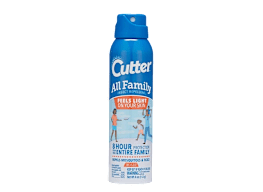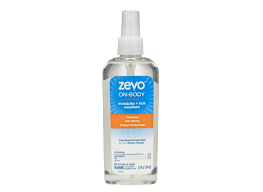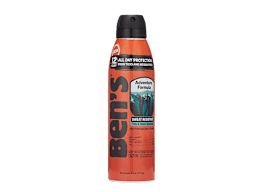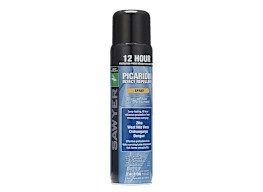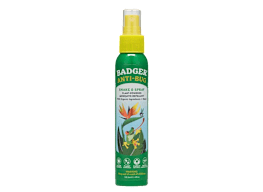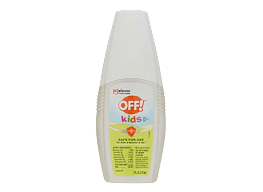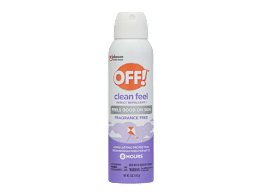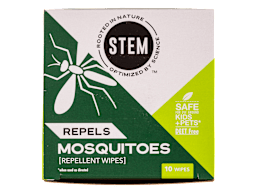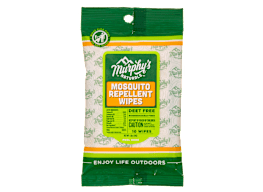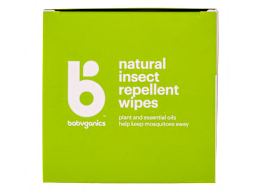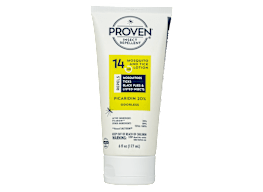4 Types of Insect Repellent to Skip
These repellents don’t provide strong protection against mosquito bites
When you shop through retailer links on our site, we may earn affiliate commissions. 100% of the fees we collect are used to support our nonprofit mission. Learn more.

With diseases like Lyme on the rise, and an ever-present threat of new tick or mosquito diseases emerging—and old ones, like dengue, resurfacing—protecting yourself against these disease-spreading insects is critical. Pharmacies, sporting goods stores, and online retailers offer a wide array of insect repellents. But the sheer volume of options presents consumers with a double-edged sword: It’s good to have choices, but it’s not always easy to tell what works and what doesn’t. That’s why we spoke to experts in the field to identify insect repellents that don’t deliver strong protection.
1. Natural Repellents
It sounds like a good idea: Use a “natural” mosquito repellent, with an active ingredient like clove or lemongrass or rosemary oil, and avoid the ones containing chemicals such as deet.
But here’s the problem: Natural repellents are regulated differently from other repellent products. The Environmental Protection Agency deems the chemicals they contain harmless, so the agency does not evaluate them for effectiveness. Because of that loophole, companies that sell natural repellents don’t have to prove that they actually work. And our testing indicates that they don’t for very long at all.
Several of the plant-based repellents in CR’s tests last just 1 hour or less against the Aedes aegypti mosquito—the kind that can spread Zika, yellow fever, dengue, and chikungunya.
Daniel Fabricant, PhD, president and CEO of the Natural Products Association, says natural repellents vary in their effectiveness the same way that other repellents do.
The Centers for Disease Control and Prevention and the EPA both say that deet is safe when used properly, even for pregnant women. Our experts agree, though they recommend sticking to products that contain 25 to 30 percent deet. And if you prefer not to use deet, our tests have found products with two other active ingredients to be effective: 30 percent oil of lemon eucalyptus and 20 percent picaridin.
2. Wristbands
These wearable repellent devices are marketed as being safer because you don’t have to rub anything on your skin.
But scientists who have tested these products have found them to be ineffective. In a 2017 study in the Journal of Insect Science, researchers found they had no significant effect in repelling mosquitoes. (Past CR tests found similar results.)
“It’s not that they don’t contain mosquito repellents,” says Immo Hansen, PhD, a co-author of the study and professor of biology at New Mexico State University. But “wearing a bracelet to protect your whole body from mosquitoes,” he says, is just not enough protection.
In 2016, the Federal Trade Commission fined one wristband maker, Viatek, $300,000 for deceptive marketing of its Mosquito Shield Bands. The commission says the company’s claims that the bands protect against mosquitoes were not backed by scientific evidence.
3. Sonic Repellents
Ultrasonic devices are claimed to emit high-frequency sounds that are too high for humans to hear but are just the right frequency to drive pests, including mosquitoes, away. The trouble is, there’s no proof that they work.
What’s more, the FTC has investigated several sonic repellent makers for false advertising. In 2016, the New York attorney general’s office sent cease and desist letters to the makers of two specific brands of sonic repellent—STAR Ultrasonic Pest Repeller and iGear iGuard 2.0 Ultrasonic Insect Pest Repeller. “Numerous scientific studies show that [these devices] don’t repel mosquitoes and may even attract mosquitoes,” the state’s attorney general said.
4. Citronella Candles
Despite the popularity of citronella candles as an area repellent, there’s little evidence that they provide solid protection against mosquito bites. “They give you a nice smell in your backyard, but they are not going to protect you from mosquitoes,” Hansen says.
Other types of candles aren’t a great bet, either. In 2018, the FTC charged one company, Mikey & Momo, with deceptive marketing of mosquito-repellent products. The company claimed its scented Aromaflage candles were as effective as a 25 percent deet spray. The agency said the claims weren’t supported by any evidence.
What About Clip-On Foggers?
Some studies, including Hansen’s 2017 research, have found that clip-on foggers or fans that emanate a mosquito repellent mist can do a decent job repelling mosquitoes.
But their efficacy is likely to be less than a repellent applied to the skin, Brown at the American Mosquito Control Association says. That’s mainly because the device produces a cloud of protective repellent around you, but the cloud in the air won’t follow you if you walk away.
Consumer Reports also has concerns about the safety of these devices since they use the chemical metofluthrin, which is classified by the EPA as a potential carcinogen.
3 Top-Rated Insect Repellents
If you want to minimize the chances of getting bitten, use one of the best insect repellents. Also, take steps to discourage mosquitoes from breeding in the first place. Keep your yard free of containers filled with water, such as gutters, birdbaths, tires, wheelbarrows, wading pools, and swimming pool covers. Clear away ivy and decaying leaves, because mosquitoes like cool, dark places. And because ticks like tall grass and lots of shade, it’s best to keep your lawn mowed and free of leaves and other debris.
The products below, listed in alphabetical order, are some of the top-performing insect repellents from Consumer Reports’ tests. CR members can see our full insect repellent ratings of more than 50 products.



